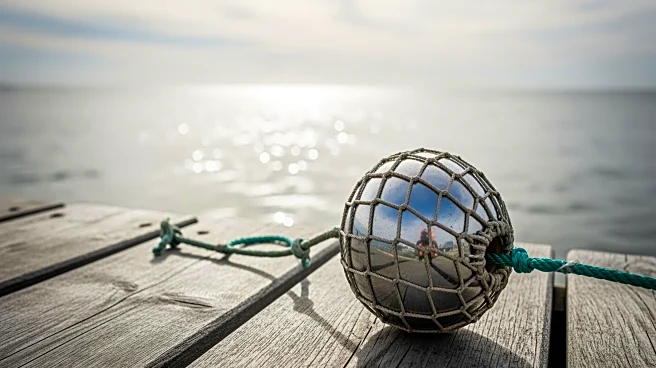What's Happening?
The UK, along with other members of the North-East Atlantic Fisheries Commission, has voted against the European Union's proposal to set sustainable quotas for mackerel fishing. The EU's proposal was based on scientific advice from the International Council
for Exploration of the Sea, which recommended a 77% reduction in mackerel catches to prevent overfishing. Conservationists have criticized the decision, warning that it could lead to severe overfishing of mackerel, a crucial fish stock in the north-east Atlantic. The UK government defended its stance, stating that catch limits should be agreed upon in separate consultations before being implemented.
Why It's Important?
The decision to reject sustainable fishing quotas has significant implications for the fishing industry and marine ecosystems. Overfishing of mackerel could lead to the collapse of this vital fish stock, affecting biodiversity and the livelihoods of communities dependent on fishing. The move also highlights tensions between short-term economic interests and long-term ecological sustainability. The UK's stance may impact its international reputation regarding environmental stewardship and could influence future negotiations on fisheries management.
What's Next?
The UK and other commission members may face increased pressure from environmental groups and international bodies to reconsider their decision. Future discussions at the Coastal States consultations will be crucial in determining sustainable catch limits. The UK government may need to balance economic interests with environmental commitments, potentially leading to policy adjustments to align with scientific recommendations.















